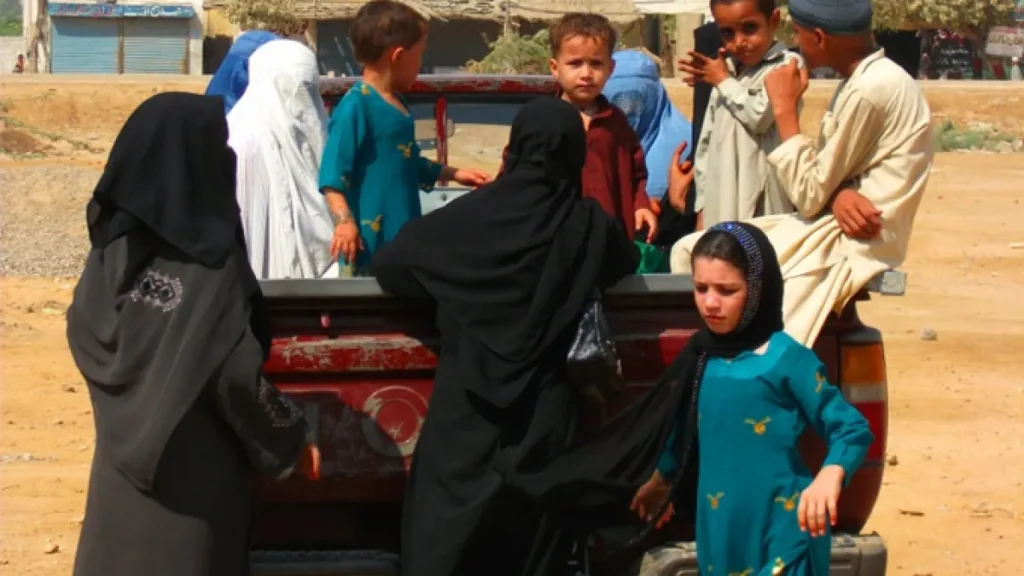Thousands of Afghan refugees residing in Khyber Pakhtunkhwa, Pakistan, are facing increasing challenges due to stricter government policies and limited resources in host communities. As Pakistan steps up efforts to repatriate undocumented immigrants, Afghan refugees are caught in a web of legal uncertainties, economic hardships, and social integration issues.
Khyber Pakhtunkhwa, which shares a long border with Afghanistan, has been a key destination for Afghan refugees fleeing decades of conflict. According to official estimates, the province currently hosts over 1.4 million registered Afghan refugees, with an unknown number of undocumented individuals. However, recent crackdowns on illegal immigrants and a surge in anti-refugee sentiment have left many Afghan families in fear of deportation.
“I came to Pakistan 15 years ago after losing everything in the war,” said Abdul Karim, a refugee living in a camp near Peshawar. “Now, we face the risk of being sent back to a country still grappling with violence and instability.”
Refugee camps in the region, such as those in Nowshera and Charsadda, are overcrowded and lack basic facilities. Aid organizations have reported a shortage of essential supplies, including food, clean water, and medical care, as donor funding dwindles.
Local communities, too, are feeling the strain. The provincial government has raised concerns over the impact of the refugee population on infrastructure, healthcare, and job markets. “We understand their plight, but our resources are limited,” said a government official, who requested anonymity.
The situation has been exacerbated by the Taliban’s return to power in Afghanistan, which has led to an uptick in refugee arrivals. Many Afghans, particularly women and minority groups, fear persecution and are reluctant to return.
The United Nations High Commissioner for Refugees (UNHCR) has urged Pakistan to uphold its international obligations and provide protection to refugees. “We recognize the challenges Pakistan faces but stress the importance of a humane approach,” said a UNHCR spokesperson.
As Pakistan debates its immigration policies, Afghan refugees in Khyber Pakhtunkhwa remain caught in a precarious situation, hoping for a resolution that balances national interests with humanitarian concerns.


